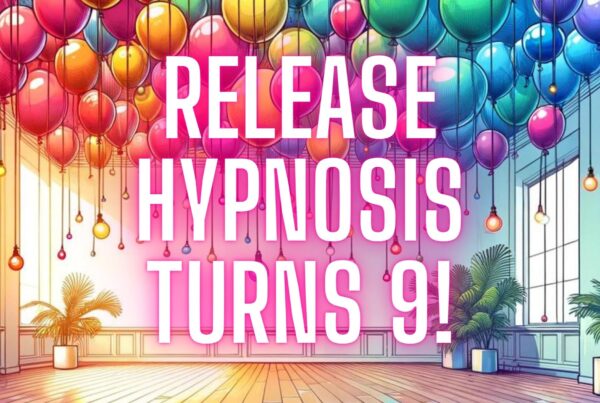Is Hypnosis Real? Separating Fact from Fiction
Is Hypnosis Real?
Hypnosis is a topic that has fascinated people for centuries. From stage performances to movies, hypnosis has been portrayed in a variety of ways. However, the question remains: is hypnosis real? Over the years, I’ve seen firsthand the incredible benefits of hypnosis. In this blog, we’ll explore the evidence supporting the validity of hypnosis and debunk common misconceptions.
What is Hypnosis?
First, let’s define what hypnosis is… or atleast attempt to. This is because hypnosis can often have as many definitions as there are therapists who practice it. What most will agree on is that hypnosis is a phenomena of heightened awareness and suggestibility. It’s a natural phenomena that we all experience throughout the day, such as when we’re daydreaming or lost in thought. In a hypnotherapy session, a trained hypnotherapist will guide you through the process of hypnosis and use techniques to help create the change you’re looking for.
The Scientific Evidence
There is a significant amount of empirical evidence supporting the validity of hypnosis. For example, a meta-analysis of 18 studies showed that hypnosis was effective in reducing pain and anxiety in patients undergoing medical procedures (Montgomery et al., 2002). Another study found that hypnosis was effective in reducing hot flashes in menopausal women (Elkins et al., 2013). These are just a couple of examples of the numerous studies that support the effectiveness of hypnosis.
Debunking Common Myths
Despite the scientific evidence, there are still many misconceptions about hypnosis. One common myth is that hypnosis is mind control. This couldn’t be further from the truth. Hypnosis is a collaborative process between the hypnotherapist and the client. The client is in complete control throughout the session and can come out of hypnosis at any time.
Another common myth is that hypnosis is only effective for certain types of people, such as those who are highly suggestible. However, research has shown that hypnosis can be effective for people across a wide range of suggestibility levels (Green et al., 2003).
The Power of the Subconscious Mind
One reason why hypnosis is so effective is because it taps into the power of the subconscious mind. Our subconscious mind is responsible for our automatic thoughts, feelings, and behaviors. By accessing the subconscious through hypnosis, we can make positive changes to these patterns.
Think of the subconscious mind like an iceberg. The part that’s visible above the water represents our conscious mind, which is only a small fraction of the whole iceberg. The vast majority of the iceberg is hidden beneath the surface, representing our subconscious mind. Hypnosis allows us to dive beneath the surface and access the power of the subconscious mind to create positive change.
The Role of Mindfulness
In addition to hypnosis, I also incorporate mindfulness techniques into my sessions. Mindfulness is the practice of being present in the moment, without judgment. It’s about paying attention to our thoughts, feelings, and physical sensations without getting caught up in them.
Research has shown that mindfulness can be effective in reducing anxiety, depression, and stress (Hofmann et al., 2010). When combined with hypnosis, mindfulness can enhance the effectiveness of hypnotherapy.
What Can Hypnosis Help With?
Hypnosis can be used to help with a variety of issues, including:
- Anxiety and stress
- Depression
- Insomnia
- Chronic pain
- Smoking cessation (or Stop Smoking)
- Weight loss
- Phobias and fears
The list goes on and on. Hypnosis is a versatile tool that can help with many different issues.
Is Hypnosis Real? Many Will Tell You It Is
Hypnosis is a real and effective tool for addressing a variety of issues. Despite common misconceptions, hypnosis is not mind control, and it can be effective for people across a wide range of suggestibility levels. By tapping into the power of the subconscious mind and incorporating mindfulness techniques, hypnotherapy can help clients overcome their problems with anxiety and uncomfortable thoughts and feelings.
Release Hypnosis Melbourne Hypnotherapy
Since 2016, Lawrence Akers has been working under the name Release Hypnosis offering Hypnotherapy and ACT based work to the people of Melbourne or an online service. Based on St Kilda Rd, Release Hypnosis is an easy and convenient location to get to and accessible by the ANZAC station train and tram stop. Release Hypnosis can help with a wide range of presenting issues, and I offer a free 30 minute no obligation discovery call for those who are unsure if hypnotherapy is the right way forward for them.
Book Your FREE 30 Minute Consultation With Release Hypnosis NOW!
You may also like to read:
How to Harness the Power of Your Subconscious Mind for Positive Change
Can’t Visualise in Hypnosis? Here’s What You Can Do Instead.
Release Hypnosis Celebrates 8 Years!
What Is The Success Rate of Hypnosis?








